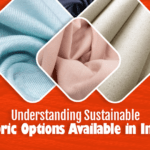What Is Slow Fashion & Why It’s Important
What Is Slow Fashion & Why It’s Important

Slow fashion is a movement and approach to clothing and fashion that prioritizes sustainability, ethical production, and quality over mass production and fast-paced trends. It is essentially the antithesis of fast fashion, which focuses on producing inexpensive, disposable clothing quickly to keep up with rapidly changing fashion trends. Slow fashion seeks to counter the negative impacts of fast fashion on the environment, workers, and consumers by promoting a more mindful and responsible approach to clothing consumption and production.
As the leading Garment Suppliers in India, our ability to blend tradition with modernity, prioritize ethical practices, and offer cost-effective solutions has solidified our position as indispensable partners for fashion brands worldwide.
Here are some key principles and reasons why slow fashion is important:
Environmental Sustainability: Slow fashion is committed to reducing the environmental footprint of the fashion industry. This includes using sustainable materials, minimizing waste, and adopting eco-friendly production processes. It aims to address issues such as water pollution, excessive energy use, and the depletion of natural resources associated with fast fashion.
Quality over Quantity: Slow fashion emphasizes the creation of high-quality, durable clothing that is designed to last. This contrasts with the disposable nature of fast fashion items that are often made poorly and wear out quickly. High-quality garments are not only more environmentally friendly but also more economical in the long run, as they require fewer replacements.
Ethical Production: Slow fashion values fair labor practices and ethical working conditions for garment workers. It opposes exploitative labor practices that are common in fast fashion, such as sweatshops and low wages. Many slow fashion brands prioritize transparency in their supply chains and ensure that workers are paid fairly and treated with respect.
Local and Artisanal Production: Some slow fashion brands prioritize local and artisanal production methods. This supports local economies, reduces carbon emissions associated with long-distance transportation, and preserves traditional craftsmanship.
Timeless Design: Slow fashion promotes timeless, classic designs that do not go out of style quickly. This discourages consumers from constantly chasing trends and encourages a more sustainable approach to fashion consumption.
Reduced Waste: Slow fashion encourages responsible consumption by discouraging impulse buying and excessive wardrobe turnover. This reduces the amount of clothing waste that ends up in landfills.
Consumer Education: Slow fashion encourages consumers to be more aware of their purchasing choices and to consider the impact of their clothing choices on the environment and society. It advocates for informed decision-making and a shift away from the culture of mindless consumerism.
Repair and Upcycling: Slow fashion promotes repairing and upcycling clothing instead of discarding it. This extends the lifespan of garments and reduces the demand for new clothing production.
slow fashion is important because it offers a more sustainable, ethical, and mindful alternative to the fast fashion industry, which often prioritizes profit and convenience at the expense of people and the planet. By choosing slow fashion, consumers can make a positive impact by supporting brands and practices that prioritize responsible production and consumption.
Aryan Apparels, the leading Apparel Manufacturing Company In India, we’re ready to hear your exciting fashion ideas. To know more in detail, connect with us.
Recent Posts
-
 Understanding Sustainable Fabric Options Available in India
Understanding Sustainable Fabric Options Available in IndiaIn today's generation of heightened environmental consciousness and sustain...
Read more -
 The Comfort and Sustainability of Organic Cotton Sweatshirts
The Comfort and Sustainability of Organic Cotton SweatshirtsConcerning cozy and environmentally friendly apparel, eco-conscious consume...
Read more -
 How to Outsource Clothing Manufacturing: Exploring Pros and Cons for Small Fashion Businesses
How to Outsource Clothing Manufacturing: Exploring Pros and Cons for Small Fashion BusinessesWhen considering outsourcing clothing manufacturing, it's crucial to conduc...
Read more -
 T-Shirt Fabric Guide: What Is the Best T-Shirt Material to Wear?
T-Shirt Fabric Guide: What Is the Best T-Shirt Material to Wear?Choosing the right T-shirt fabric is crucial for comfort, style, and durabi...
Read more -
 The Role of the Clothing Manufacturer in Creating Eco-Friendly Garments
The Role of the Clothing Manufacturer in Creating Eco-Friendly GarmentsThe role of clothing manufacturers in creating eco-friendly garments is piv...
Read more


